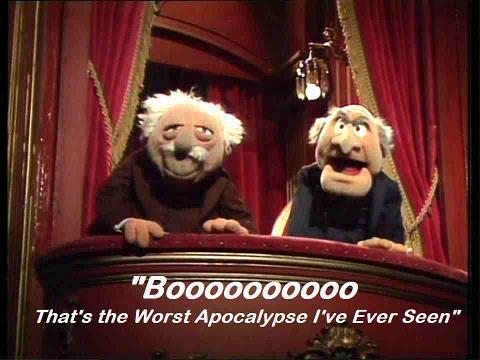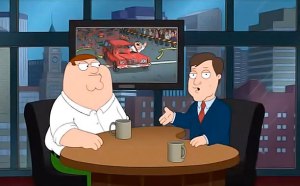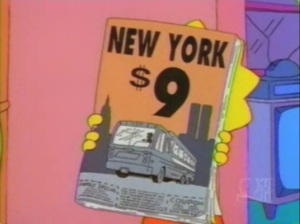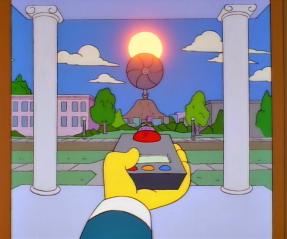In the Archives: Edgar Allan Faux (1877 then 1845)
They say humor is based on timing. Yes, as is everything else. Ask Elisha Gray about telephone patents. I was plugging along, working on a piece about the comedian Dana Gould, and still figuring out when I would finish writing about Mark Twain and the German language, when an article in my local newspaper caught my attention:
“Dead Poets Society founder visits 300th grave”
The fact that there’s an actual Dead Poets Society prompts visions of Ethan Hawkes’s teeth and an involuntary desire to kill Robert Sean Leonard. Swallowing my bile I learned that the current founder, Walter Skold of Freeport (Maine), has visited the gravesites of 300 poets “ahead of this weekend’s fourth annual Dead Poets Remembrance Day.”
What is “Dead Poets Remembrance Day”? Apparently, “with the help of 13 current and past state poets laureate,” Skold was able to dedicate October 7—“the day that Edgar Allan Poe died and James Whitcomb Riley was born—to heightening public awareness of the art of poetry.
The article posted October 5. That was Saturday. Making the actual memorial day a Monday. Today. My day to submit. So in honor of dead poets everywhere (and as one who writes the occasional verse and considers the artform dead, and therefore all practitioners the undead) let us examine the two poets tied to this day. What the article does not share is an appreciation for not just the day, but the year. On October 7, 1849, as Edgar Allan Poe lay dying of possibly drunken Rabies in a Baltimore medical college, James Whitcomb Riley was borning in Greenfield, Indiana.
A Blanc Slate
Last week I took a class called Getting Paid to Talk: Making Money with Your Voice. I had never seen this class in our local Parks and Recreation catalogue—usually dedicated to Acting for Youngstars! or Wine Glass Fun. As the title bordered on George Carlin’s superfluous redundancy, I wanted to attend, but could not commit until that day, as children have a habit of ruining the best-laid plans.
I was a child when voices first captured my attention. Yes, I get we all were children when first fascinated by speech, but my concern was delivery. Daffy’s lisp, Porky’s stutter, the Kentucky drawl of Foghorn and da Brooklyn cant of Bugs. I grew up with Looney Tunes the way American education used to teach rhetoric, before it gave up. We watched Disney movies at the Rec Center—a different Rec Center, not the Wine Glass Center—back when video stores were not yet born now long dead, and cable included the cord connecting your TV to thirty-seven possible channels. The only thing on demand was our need to be specific places to watch specific things when other people did the same. The images caught our attention, but the voices kept it. Every one was distinct, and many times they had to be to help differentiate the characters. These products began in an age of radio, when actors used their talents aurally, because they could not offer an audience (Audio, Audire, Audivi, Auditus—to hear) any talents visually.
Watching TV Scramble: Editing Jokes After the Fact
As I watched last night’s Family Guy, my local Chicago station’s news teaser informed me of an unfolding tragedy to our West. Tornadoes were hitting parts of the Midwest and they were heading our way. As the second episode began, one character, Stewie, requested that they watch The Weather Channel because, “there are tornadoes in the Midwest and I like watching poor people scramble to save what little they have.” For those who didn’t initially notice it, the presence of an onscreen weather warning made the juxtaposition explicit.
This was not the first instance of Family Guy inadvertently finding extra sickness as their jokes took on new substance in relation to current events. The March 17 episode, “Turban Cowboy,” showed a character, Peter, drunk-driving his way through a crowd of runners to win the Boston Marathon. Later in the same episode, Peter unwittingly becomes involved with a terrorist organization, which leads to a gag in which he repeatedly, albeit accidentally, detonates bombs with his cell phone. After the attacks at the Boston Marathon less than a month later, these clips gained a lot of traction on the internet and Fox pulled the episode from its official internet sites and, at least for now, from future airing as reruns.
Over at Splitsider, Joshua Kurp lists similar situations in response to 9/11 with episodes of The Simpsons, Rocko’s Modern Life, Sex and the City, Friends, Married. . .With Children, and Spongebob Squarepants.
In these cases, where jokes get cut or entire episodes disappear from reruns, we witness a fascinating indicator of humor and television’s temporality in relation to more serious events in the “real world.” The inadvertent nature of these juxtapositions create a kind of dramatic irony that adds an extra element of humor to these episodes. But they also indicate interesting changes in what is considered to be acceptable discourse. Kurp’s article claims – and DVD commentary by writers backs him up – that many syndication markets pulled the 1997 Simpsons episode in which Homer visits New York and has a particularly hard time in the shadows of the Twin Towers. Even after its return, at least one joke remains edited for the sake of sensitivity. One man informs Homer that, “They put all the jerks in Tower One.” Entirely inoffensive in its original context, the concept that any “jerks” (aside from the hijackers) might have died on 9/11 has apparently become unfathomable. Of course, to say it out loud makes that idea sound ludicrous, but the construct that dichotomizes cowards and heroes in the wake of such events is a powerful tool of both psychological comfort and ideological reinforcement. That a joke made to the contrary – even one made in 1997 – cannot question that logic is apparently too radical for syndication.
For humor and media scholars, these prove especially interesting cases for thinking about the temporality of both. While often theorized as an essentially live medium, television in these cases seems to straddle a line between past-ness and present-ness as it shows documents from the past, but edits appear to deny their status as historical documents. The same might be argued of racist, sexist, or any other troubling -ist humor in other texts, but these are not judgments based on universal ethical or moral values. Instead, they reflect a fundamentally ahistorical reading of television comedy in relation to privileged instances of ideology.
(c) 2103, Phil Scepanski
Editor’s Chair: Let’s Destroy the Sun
Tracy Wuster
A friend of mine–and one of my favorite pessimists–has said that she cures writer’s block by placing one simple sentence at the top of her page and going from there. So here goes:
Since the dawn of time, man has yearned to destroy the sun.
There. Maybe that will help…
Nope. I just don’t have anything intelligent to say about humor right now, nothing like Jeffrey Melton’s sharp piece on pedagogy of humor, or Matt Powell’s excellent work on Andy Kaufman’s music, Matthew Duabe’s insightful piece on performance and Princess Ivona, Sharon McCoy’s truly funny meditation on germs in public places, Caroline Zarlengo Sposto’s birthday wishes to that great American poet Muhammed Ali, Phil Scepanski’s insightful discussion of sick humor, or ABE’s solid writing on Marc Maron’s podcast. See, I have resorted to a clip show, the final resort of the lazy sitcom writer (although those are all excellent pieces worth reading, for sure).
But I have nothing. I wish I could turn my external circumstances–which are not really conducive to writing about humor–into humorous insight, as Sharon McCoy has so wonderfully done on our pages. But I can’t. I apologize.
Instead, I will point to the work I have been doing with the AHSA and Humor Studies Caucus of the ASA to plan panels for upcoming conferences in Boston (ALA) and D.C. (ASA). Also, check out the announcements page above or on the AHSA website for new CFPs for the AHSA at MLA 2014, humor studies and Mark Twain at the RMLA, and humor studies at SAMLA.
Also, I blame my book, the manuscript of which is due to the University of Missouri Press at the end of the month. Here is a brief sample, touching on Twain and humor:
In 1874, as Twain was writing the series “Old Times on the Mississippi” for the Atlantic, Howells attempted to ease Twain’s fears about the audience he was writing for, stating in a letter “Don’t write at any supposed Atlantic audience, but yarn it off as into my sympathetic ear.” Twain responded with a line that reflects a sense of relief at this new professional opportunity: “It isn’t the Atlantic audience that distresses me; for it is the only audience that I sit down before in perfect serenity (for the simple reason that it don’t require a ‘humorist’ to paint himself stripèd & stand on his head every fifteen minutes.)”[1] The possibility of earning a living, or at least a reputation, as a new type of humorist—one who didn’t have to curry public favor with constant buffoonery—seems to have appealed to Twain.

[1] William D. Howells to SLC, 3 December 1874, (UCLC 32073).http://www.marktwainproject.org/x tf/view?docId=letters/UCLC32073.xml;styl e=letter;brand=mtp and SLC to William Dean Howells, 8 Dec 1874, Hartford, Conn. (UCCL 05257). <http://www.marktwainproject.org/xtf/view?docId=letters/UCCL05257.xml;style=letter;brand=mtp>
The third best gift of all: The Muppets and Laughter
Tracy Wuster
Over the past few weeks, I had several discussions with friends and acquaintances about the upcoming Muppet movie. People were excited. I discovered that people my age grew up with the Muppets–first with Sesame Street and then the Muppet Show, with some Fraggles thrown in. My earliest movie-going memory is seeing a Muppet movie, probably “The Muppets Take Manhattan” (1984), with my dad and brother. I may remember it because my dad snored through the previews, movie, and credits–despite my brother nudging him constantly.*
But the Muppets are lodged in my memory for more than my dad’s critical response to the film, of which Statler and Waldorf would no doubt have approved. My sense of humor was shaped by the show and movies in ways that are hard to define–a mixture of bizarre (Gonzo and his chickens), cornball (Fozzie), counterculture (Dr. Teeth and the Electric Mayhem), anarchic (Animal; Crazy Harry), musical (Rowlf; musical numbers in general), absurd (The Swedish Chef; Beaker), brash (Miss Piggy), and sentimental (Kermit).
The Muppets helped to define humor for me and many people my age, along with Saturday Night Live, Looney Toons, the movies of Mel Brooks and John Hughes, The Simpsons and other sitcomes, and the stand-up of the 1970s and 80s. And then the Muppets faded. The Muppets movies of the 1990s, following the death of Jim Henson in 1990–Christmas Carol (1992), Treasure Island (1996), and Muppets from Space (1999)–were largely forgettable.
The new Muppet movie is planned as a reboot of the franchise, with a self-referential plot about the fade and rediscovery of the Muppets through what the Muppets do best: putting on a show. A main reason for hope for the new Muppet movie was the presence of Jason Segel at the helm. Segel wrote and stars, and his love for the Muppets as a comedic touchstone from his childhood shows through the film. When Segel stated in an interview that he cried the first time he heard Kermit read lines he had written, I understood. The new Muppet movie was thus overlaid with a heavy layer of generational nostalgia and the desire for a beloved childhood icon to return to past glory.
Thus, my expectations for the film itself were quite high: I wanted to be entertained. And entertainment is what the Muppets are all about. And the film is entertaining–from the opening montage of Segel and his brother (a muppet named Walter) through the big show in which the Muppets attempt to save their theater. A few dud moments–the “rap” of the evil villain Tex Richman, the unnecessary “Moopets”–are quickly glossed over in favor of highlights, including a few great musical numbers–the chickens clucking Cee Lo Green’s “F*ck You”; a Queen-inspired “Man or Muppet?” [listen below]; and a moving version of “Rainbow Connection.”
If I had gone into this movie simply wanting to be entertained, then the movie would have been a solid success. I laughed, I got sentimental, I enjoyed the celebrity cameos. I rooted for the good guys to overcome the villain, knowing full well that the Muppets always win in the end. But once the movie was over, my academic mind began to think over the movie, assessing its position as a humorous work. It’s difficult to approach a subject critically that has such a nostalgic connection to childhood. But I had promised to write a review for this website–something possibly insightful. I have never written a movie review–academic or otherwise–but here goes:
Happy Halloween!
While watching scary movies this weekend, I noticed the similarities between horror and humor: suspense released through an emotional response, expectations build up and often end in surprise, and lots and lots of blood…
*Seven Graveyard Smashes…our own music editor, Matt Powell, on Halloween music.
*Michael Collier’s “All Souls”
*Will Rogers in “The Headless Horsemen”
*Halloween on Parks & Rec
*Halloween music, via Nine Kinds of Pie
*the origin of Halloween traditions…
*Werewolf Bar Mitzvah, spooky scary….
*A great version of Poe’s “The Raven” mixing humor and horror.
*Congratulations to the St. Louis Cardinals San Francisco Giants …via funny baseball quotes.
*Finally, some political cartoons from the past few years, as Halloween tropes are recycled to address new fears and old.
2014
*
*
*
*
*
*
*
*
*
*
*
*
*
*
*
*
*
*
*
*
*
*
*
*
*
*
*
*
*
*
**
*
*
*
*
**
*
*
*
*
**
*
*
*
**
*
*
**
*
*
**
*
*
*
**
**
*
**
*
*
*
*
**
**
*
*
*
*
*
*
**
*
*
*
**
*
*
*
*
*
*
*
*
*
*
*
*
*
*
*
*
*
*
**
*
*
*
*
*
*
*
*
*
*
*
**
*
*
**
*
**
*
**
**
**
*
*
*
*
*
*
*
*
*
*
*
**
*
*
**
*
*
*
**
*
*
*
**
*
**
2011
























